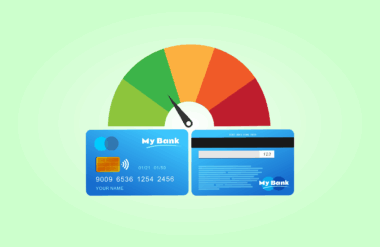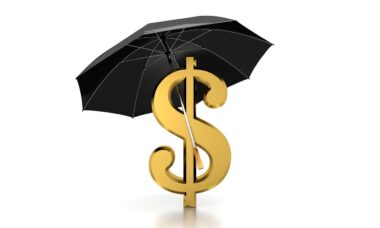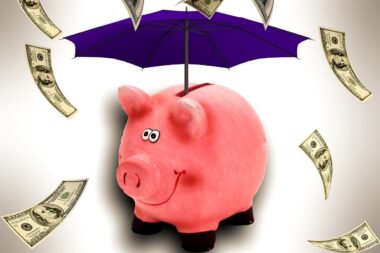Tips for Using Credit Cards Responsibly in an Emergency
In a financial emergency, having a credit card can provide immediate relief. However, it’s crucial to handle this tool carefully. First, assess the situation and determine whether your financial issue genuinely requires credit. If the expense is unavoidable, understand the interest rates and fees associated with your card. Comparing credit options is essential before making crucial decisions. Many emergency expenses, such as medical bills or urgent repairs, can hit hard financially. Having a credit card allows paying for these costs on-the-spot. Keeping calm and being level-headed in such situations is vital. Also, maintain a record of all transactions, ensuring you don’t exceed your means. Budget accordingly for repayments, as neglecting these can escalate your financial troubles. The key is to plan how you will repay the borrowed funds. Try to pay off the balance within the promotional period to avoid incurring substantial interest charges. Use credit cards as a safety net, and not as a primary source for regular expenses. Remember, responsible use stems from understanding your financial health. Only charge what you can handle to protect against overwhelming debt accumulation.
In emergencies, prioritize essentials over wants for a balanced financial approach. While credit cards offer flexibility during tough times, misuse can lead to long-term consequences. Keep essential expenses such as housing, utilities, and food at the forefront. When faced with an unexpected bill, determine if it’s essential to use your card. If possible, look for alternative solutions before resorting to credit. For example, can you negotiate payment plans or seek assistance from friends or family? Creating a clear plan helps you avoid unnecessary charges. Ensure you thoroughly read the credit card agreement; careless borrowing can trap you in debt quickly. Keep an eye on your credit utilization ratio. Ideally, limit credit usage to about 30% of your available credit to avoid damaging your score. Should emergencies strike, use the card wisely, focusing on short-term needs while planning for long-term obligations. Emergency funds play an essential role in easing reliance on credit cards. Therefore, reviewing your budget and establishing a savings plan enables you to handle unforeseen circumstances better. Make informed decisions during a financial crisis by analyzing every option at your disposal.
Understanding Interest Rates
Interest rates can significantly impact the cost of borrowing on credit cards. When you use your card during an emergency, the amount you’re charged will grow due to these rates. It’s crucial to know your card’s APR (Annual Percentage Rate), as this will affect how quickly your debt grows. If you can’t pay off your balance promptly, you may find that what seemed affordable turns into a larger hardship. Additionally, some cards offer introductory 0% APR periods, allowing you to make necessary purchases without accruing interest during this time. Take advantage of such offers but ensure you plan to pay off your balance before the promotional period ends. Understanding the interest rates helps in making prudent decisions about repayment strategies. Establish a clear timeline on when you’ll pay off the balance to avoid penalties. Consumers often overlook how minimal payments extend the duration and overall costs of a debt, so don’t just pay the minimum. Consciously work towards reducing the balance aggressively. Such actions protect your financial future by minimizing long-term debt burdens while promoting healthy credit usage habits that benefit your credit score.
In times of financial distress, it’s easy to overlook small spending habits. Creating a budget is essential for understanding your cash flow and identifying areas to cut back. By controlling your spending, you can allocate more resources towards repaying any credit card debt incurred during emergencies. Regularly reviewing and adjusting your budget allows you to focus on the most critical expenses first. Furthermore, implement a plan to build an emergency fund once your immediate situation stabilizes. Start small by allocating a portion of your income towards this fund regularly. An emergency fund acts as a financial cushion for the future, reducing reliance on credit cards when emergencies arise. Decide on the ideal amount for your emergency savings, with experts recommending three to six months’ worth of living expenses. Maintaining this fund contributes to financial security while providing peace of mind for unforeseen expenses. Use tools like budgeting apps or spreadsheets to track your progress toward this goal. Set specific savings targets that motivate you, helping gradually build your financial safety net without resorting to debt. Automatic transfers can simplify this, ensuring consistent contributions to your savings over time.
Responsible Spending with Credit Cards
Responsible credit card usage hinges on informed decision-making. When faced with unexpected expenses, it’s tempting to swipe that card without considering long-term consequences. Before making a purchase, ask yourself if it’s truly necessary or an impulse buy. Establish a priority list based on urgency and importance. This approach ensures you’re not overextending your finances and can repay the balance on time. Use your credit card for emergencies alone, treating it as a last resort. Cultivating a mindset centered on conscious spending enhances financial literacy and long-term health. If you often rely on credit, consider exploring ways to improve your financial habits, such as seeking advice or attending workshops. Regularly reviewing your transactions can help identify and correct bad habits. If managing multiple cards becomes overwhelming, prioritize one to simplify repayments. Understanding your credit profile directly impacts your borrowing capabilities. Inquire about credit pre-approvals or reviews with your bank, ensuring you remain informed about financial opportunities. Attempt to increase your cash flow by finding new income streams, like freelancing or negotiating raises. Overall, using credit cards should empower your financial goals rather than sidetracking them unnecessarily.
In an emergency, knowing your card’s maximum limit is crucial to prevent overspending. Exceeding credit limits often comes with hefty fees, which can escalate your financial troubles. Work towards keeping your credit utilization low; this positively impacts your credit score. Aim to use only a small fraction of your total credit to maintain a healthy balance. Understanding when to use your credit card helps you stay disciplined in managing debt. Establish guidelines for emergencies and stick to them, avoiding impulsive decisions during stressful times. Remember that accruing high-interest debt can become burdensome if you don’t manage it wisely. Track your spending diligently to stay within your limits while ensuring you prioritize essential needs during these challenging moments. If you find yourself struggling with payments, communicate with your card issuer. Many companies offer hardship programs to assist customers in financial distress, potentially lowering interest rates or establishing more manageable payment plans. Maintaining open and honest communication can alleviate stress and help you navigate through financial challenges more effectively, thus laying down the foundation for a healthier financial future and responsibly using your credit cards.
Conclusion and Recap
Using credit cards responsibly during emergencies requires careful planning and discipline. Prioritizing needs, understanding interest rates, and maintaining a relaxing budget help relief and preservation from overwhelming debt accumulation. This proactive approach strengthens financial security and resilience to unforeseen challenges. Building an emergency fund is essential for improving your financial outlook and minimizing reliance on credit for unexpected expenses. Understand your credit card’s limitations and establish guidelines for responsible use. Maintaining a healthy credit utilization ratio not only supports your financial stability but also contributes to a better credit score. Invest in your financial education through resources or professional consultation to become better equipped to navigate complex financial landscapes. Review and reassess your situation regularly for ongoing improvement and growth. By implementing these tips, you will foster a more disciplined credit card usage culture in your life, turning potential financial emergencies into manageable situations. Set the intention to remain informed and engaged in your financial journey, empowering you to make better decisions over time. Ultimately, responsible use leads to financial freedom and healthier future spending habits.








